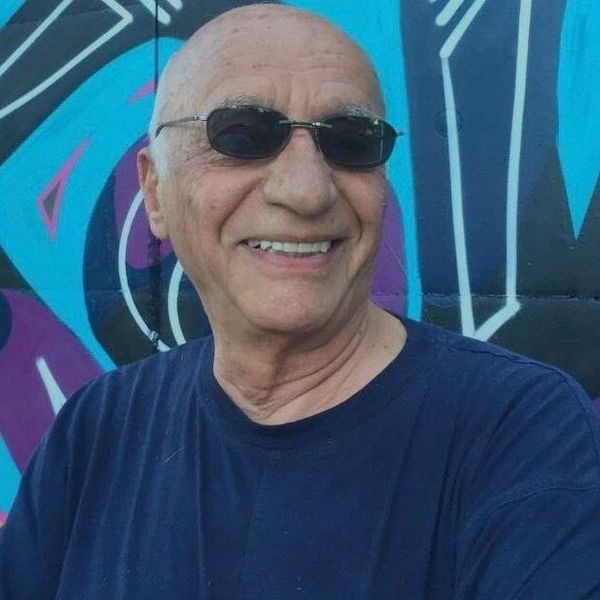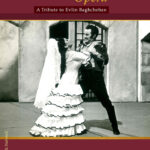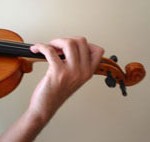Composing a traditional Iranian opera using the Iranian modal system, dastgāh, has always been my dream. I first approached this by composing an opera called Ashura followed by the operas Rumi and Hafez. I believe that in order to attract an international audience for Iranian opera, it is essential to fuse dastgāh with Western classical forms.
Tag Archives: molavi
Latest posts
- Transition to Enlightenment: Six Lectures on Mozart’s String Quartets (5)
- Nasser Masoudi: The Voice of Gilan and a Legacy of Iranian Music
- Farhad Poupel: The Voice of the Shahnameh in the Orchestras Around the World
- Five Major Myths About Mozart’s Life
- Bahma Rajabi Passed Away!
- Reza Vohdani; Unveiling unpublished works, preservation of Iranian classical music
- Ahmad Pejman Passed Away!
- Timeless or Timely: The Role of Historical Context in Defining Artistic Value
- Leading the Charge in Censorship
- The Legacy of Khosrow Jafarzadeh
- Transition to Enlightenment: Six Lectures on Mozart’s String Quartets (4)
- Fereydoun Shahbazian, An Iranian Musical Icon Passed Away
From Past Days…

Interview with Farhad Poupel (II)
Fantasia on One Note was my first professional work for piano, which had its world premiere by the great pianist Peter Jablonski in Sweden, and it has been performed by various pianists in the UK, Germany, France, and the Czech Republic. The recording of this work has also been broadcast on the Dutch public radio, NPR Radio 4.

The Structure of Kurdistan Daf (VI)
Researcher: Mohammad Tarighat Translator: Fatemeh Alimohammadi Hooks and attached rings: The junction of the ring to the arch is about 3 centimeters from the skin. The ring with its side rings should be as far as the diameter of a ring (about one and a half to one and eight centimeters) to make a proper…
Read More

From the Last Instrumentalist to the First Composer (I)
Music as an art has its own special history; emergence of a singer, of an instrumentalist and then the emergence of the strong character of a composer covers three significant phases of the art of music. With the emergence of composer which was simultaneous with the emergence of the language of music, this art managed to offer a domain for criticism for its composer; a procedure which led to a magnificent variety and evolution in musical production. Even though the conflicts between singers and instrumentalists have not met their end in the Iranian society and while singers can achieve high, instrumentalists have yet to play behind curtains . In a special era, with the efforts of musicians such as Ali Naghi Vaziri (1887-1979) and Rouhollah Khaleghi (1906-1965), glimmers of a composing era started to glow bearing fruit in Khaleghi’s achievement as Iran’s first professional composer. Khaleghi made his reputation as a composer while Vaziri deserved to pioneer this path. By then Vaziri was well-known as a Tar player.

Avaye Naerika Percussion Orchestra
Avaye Naerika Percussion Orchestra is an Iranian percussion orchestra featuring 40 lady percussionists. The Orchestra was established as Iran’s largest all-female percussion orchestra in 2008 by Ms. Minoo Rezaei under the title Naerika Percussion Orchestra and changed its name to Avaye Naerika in 2017.

The Legacy of Khosrow Jafarzadeh
This year marks the fifth anniversary of the passing of Khosrow Jafarzadeh (Khosrow Djafar-Zadeh), a distinguished architect and pioneering researcher of Iranian music, whose contributions to the magazine “Harmony Talk” have left an indelible mark on the field. The absence of this remarkable individual has significantly impacted the expansion and advancement of his theories, which are heralded as some of the most progressive in the history of Iranian music

Rare documents of Tehran Opera Company published in Europe
The year 2020 marks the 10th anniversary of Evlin Baghcheban’s death. She played a crucial role to promote opera and choral music in Persia (Iran). Born to an Assyrian-French family in Turkey, she studied singing and piano at the Ankara State Conservatory. In 1950 Evlin married the Persian composer and fellow student Samin Baghcheban and moved to Tehran.

Gholam Reza Khan Minbashian: a pioneer in Iranian music (I)
Gholam Reza Khan Minbashian, a.k.a Salar-Mo’azez, was a pioneer in several domains in the history of the Iranian music. He is recognized as the first Iranian musician who was educated in classical music. He is also the first Iranian the score of whose works were published in Europe. He is the first Iranian to have launched courses on Western classical music and was also the first Iranian teacher of classical music. Moreover, he is the first founder of a string orchestra in Iran, the first author of the Iranian Radif which was available in oral form. Minbashian is also the first Iranian who studied music in Europe.

Iranian Fallacies – Composition and Arrangement
In the tradition of classical music, it is generally tried to use the same technical terms related to music in all countries. Even in the cultures in which native terms exist to refer to musical terms, usually the better known universal terms are employed.

Principles of Violin Playing (VIII)
1.5.1.3.sometimes, a player, due to different reasons, may decisively want to play continuously two notes with a half-step by means of the same finger, in such a case, it’s necessary to open the interior curve of the finger like a spring. Naturally coming back, the curve of finger should be closed and the finger should become curved shape again (see paragraph 3.1.2.1).

Interview with Farhad Poupel (I)
Born in Isfahan, Iran, and based in the UK, Farhad Poupel’s music has been performed and will be performed in numerous prestigious concert halls and festivals throughout the world including Suntory Hall in Tokyo, Japan; La Roque-d’Anthéron Piano Festival, La Roque-d’Anthéron, France; Biarritz Festival, Biarritz, France; Stoller Hall, Manchester, UK; Janacek academy of music and performing art, Brno, Czech Republic; Karlskrona International Piano Festival, Karlskrona, Sweden; by distinguished artists such as Kotaro Fukuma, Peter Jablonski, Daniel Grimwood, Margaret Fingerhut, Catherine Carby, Kristýna Znamenáčková,Jeffrey Biegel, Jean-Francois Bouvery and orchestras such as Windsor Symphony Orchestra or broadcasted on the NPR Radio 4, Netherland. The following is an interview with him on the ocaasion of the premier of the Legend of Bijan and Manijeh.